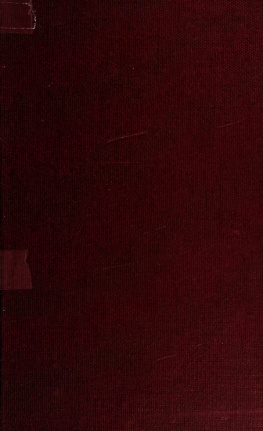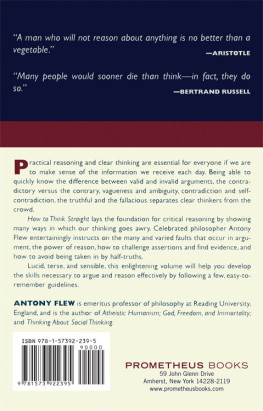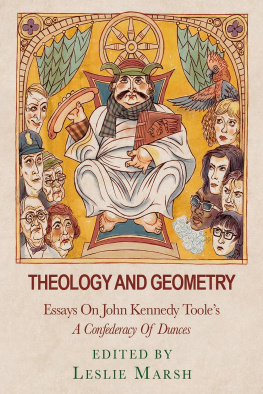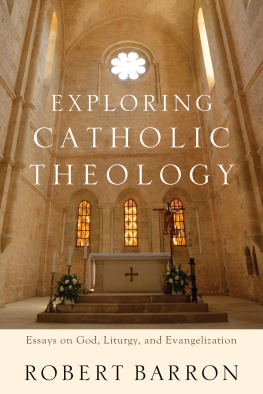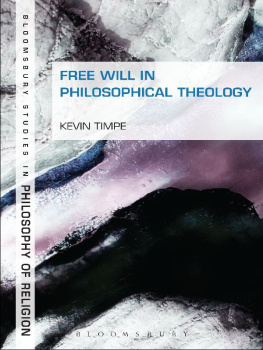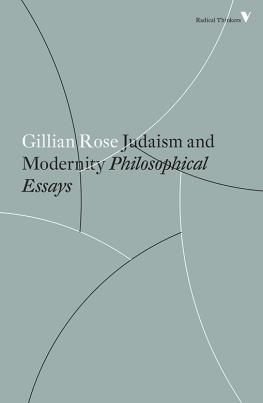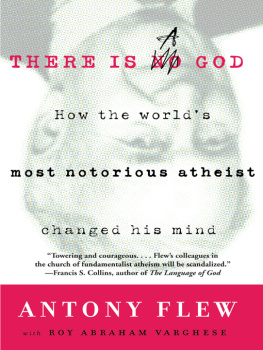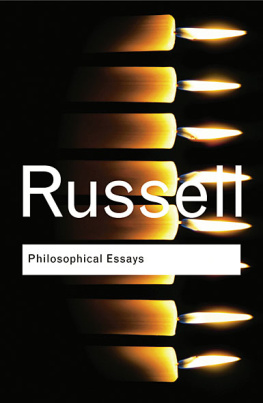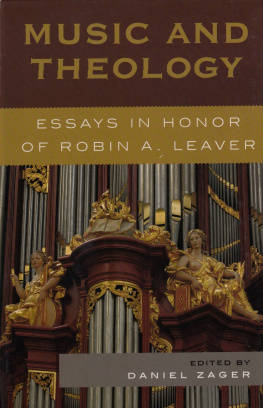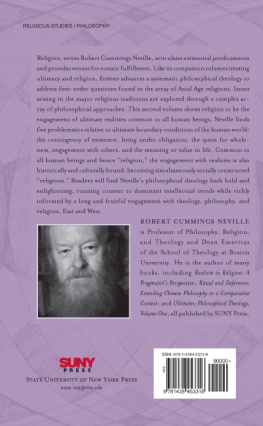Flew - New essays in philosophical theology
Here you can read online Flew - New essays in philosophical theology full text of the book (entire story) in english for free. Download pdf and epub, get meaning, cover and reviews about this ebook. year: 1963, publisher: London : SCM Press, genre: Religion. Description of the work, (preface) as well as reviews are available. Best literature library LitArk.com created for fans of good reading and offers a wide selection of genres:
Romance novel
Science fiction
Adventure
Detective
Science
History
Home and family
Prose
Art
Politics
Computer
Non-fiction
Religion
Business
Children
Humor
Choose a favorite category and find really read worthwhile books. Enjoy immersion in the world of imagination, feel the emotions of the characters or learn something new for yourself, make an fascinating discovery.
New essays in philosophical theology: summary, description and annotation
We offer to read an annotation, description, summary or preface (depends on what the author of the book "New essays in philosophical theology" wrote himself). If you haven't found the necessary information about the book — write in the comments, we will try to find it.
Flew: author's other books
Who wrote New essays in philosophical theology? Find out the surname, the name of the author of the book and a list of all author's works by series.
New essays in philosophical theology — read online for free the complete book (whole text) full work
Below is the text of the book, divided by pages. System saving the place of the last page read, allows you to conveniently read the book "New essays in philosophical theology" online for free, without having to search again every time where you left off. Put a bookmark, and you can go to the page where you finished reading at any time.
Font size:
Interval:
Bookmark:

Flew, Antony, 1923
This book was produced in EPUB format by the Internet Archive.
The book pages were scanned and converted to EPUB format automatically. This process relies on optical character recognition, and is somewhat susceptible to errors. The book may not offer the correct reading sequence, and there may be weird characters, non-words, and incorrect guesses at structure. Some page numbers and headers or footers may remain from the scanned page. The process which identifies images might have found stray marks on the page which are not actually images from the book. The hidden page numbering which may be available to your ereader corresponds to the numbered pages in the print edition, but is not an exact match; page numbers will increment at the same rate as the corresponding print edition, but we may have started numbering before the print book's visible page numbers. The Internet Archive is working to improve the scanning process and resulting books, but in the meantime, we hope that this book will be useful to you.
The Internet Archive was founded in 1996 to build an Internet library and to promote universal access to all knowledge. The Archive's purposes include offering permanent access for researchers, historians, scholars, people with disabilities, and the general public to historical collections that exist in digital format. The Internet Archive includes texts, audio, moving images, and software as well as archived web pages, and provides specialized services for information access for the blind and other persons with disabilities.
Created with abbyy2epub (v.1.7.2)

TRENT UNIVERSITY LIBRARY
Digitized by the Internet Archive in 2019 with funding from Kahle/Austin Foundation
https://archive.org/details/newessaysinphiloOOOOflew
edited by
ANTONY FLEW
Professor of Philosophy in the University College of North Staffordshire
ALASDAIR MACINTYRE
Fellow of Nuffield College,
Oxford
SCM PRESS LTD
BLOOMSBURY STREET LONDON
First published 1959 Second impression December 1958 Third impression February ig6i First Cheap Edition September 1963
IpO
Ti
Made and printed in Great Britain by William Clowes and Sons, Limited, London and Beccles
ONULP.
Preface by Antony Flew and Alasdair MacIntyre vii
I. Can Religion be Discussed? by A. JV. Prior I
II. Metaphysics, Logic and Theology by J. J. C.
Smart 12
III. The Existence of God by J. J. C. Smart 28
IV. Can Gods Existence be Disproved?
A. by J. JV. Findlay 47 ^
B. by G. E. Hughes 56
C. by A. C. A. Rainer (Windsor) 67
D. by J. JV. Findlay 71
V. A Religious Way of Knowing by C. B. Martin 76 ^
VI. Theology and Falsification (i) The University Discussion
A. by Antony Flew 96
B. by R. M. Hare 99
C. by Basil Mitchell 103
D. by Antony Flew 106
(ii) Arising from the University Discussion by I. M.
Crombie 109
VII. Religion as the Inexpressible by Thomas McPherson 131
VIII. Divine Omnipotence and Human Freedom by
Antony Flew 144
IX. Creation by Antony Flew and D. M. MacKinnon 170
X. Tertullians Paradox by Bernard Williams 187
v
40251
Contents
XI. The Perfect Good by C. B. Martin 212
XII. Demythologizing and the Problem of Validity
by Ronald W. Hepburn 227
XIII. Miracles by Patrick Nowell-Smith 243
XIV. Visions by Alasdair MacIntyre 254
XV. Death
A. by D. M. MacKinnon 261
B. by Antony Flew 267
Index of Names 273
This is a collection of twenty-two papers by sixteen different philosophers working in the British Commonwealth. The first thing which all the contributors have in common is a familiarity with and a great indebtedness to the recent revolution in philosophy. They are therefore certain to be labelled Logical Positivists by most laymen, including many professional theologians; and even by most philosophers outside the English-speaking countries. This label is entirely inappropriate: if it is to be taken, as it is and should be, to imply a toeing of the party line of the now defunct Vienna Circle; a position brilliantly epitomized by the Ayer of Language, Truth and Logic (First Edition, 1936: Gollancz, London). This is not the place to describe or discuss the revolution in philosophy or to estimate the part played in it by the Vienna Circle.1 It should be sufficient here simply to repudiate the popular misconception that all the philosophers are Logical Positivists nowadays: and to ask that this volume be judged on its arguments, and not be forced into some preconceived matrix of misunderstanding. The second thing which the contributors share is a concern with theological questions, and a conviction that these call for serious and particular treatment. (Whereas the Logical Positivists used to reject all theology holus-bolus as so much meaningless metaphysics.) But this common conviction and concern is not accompanied by a community of religious belief. One Editor is a Christian and one is not: while the contributors and contributions are likewise divided just about equally.2
1 Anyone interested might refer to: The Revolution in Philosophy (Macmillan, 1955), essays on the history of recent developments edited by D. F. Pears; and Logic and Language (Blackwell, Oxford: First Series, 1951, and Second Series 1953), and Essays in Conceptual Analysis (Macmillan, 1956), anthologies of recent philosophical articles edited by Antony Flew.
2 It will perhaps be of interest to some to mention that though we made our selection with no thought of denomination in mind it has turned out that the majority of our Christian contributors are within the Anglican communion. To our great regret the one Roman Catholic whom we approached felt unable to co-operate.
vii
Our title perhaps calls for some explanation. The word new is put in: not because the papers included are here published for the first timefor the majority have already appeared before somewhere; but because it is only in the last few years that attempts have been made to apply these latest philosophical techniques and insights to theological issues, while this is probably the first time that a whole book has been devoted to this enormous job. We should like to have used the expression Philosophy of Religion for its analogy with Philosophy of History, Philosophy of Science, and so on: since the questions discussed here are philosophical and bear the same sort of relation to religious thought and practice as the questions of the philosophy of history and of science bear to the thought and practice of working scientists and historians; the relation, that is, of arising out of or being posed by these empirical disciplines, while being themselves philosophical and not factual questions (see Chapter III). But this expression has become, and seems likely for some time to remain, associated with Idealist attempts to present philosophical prolegomena to theistic theology. So we have adapted as an alternative the expression Philosophical Theology ; which has a welcome analogy to Philosophical Ethics and Philosophical Aesthetics, occasionally used to cover the parallel philosophical inquiries which arise out of moral and critical thought and practice. We realize that many will be startled to find the word theology so used that: the expression theistic theologian is not tautological; and the expression atheist theologian is not self-contradictory. But unless this unusual usage of ours is adopted we have to accept the paradox that those who reach opposite conclusions about certain questions must be regarded as having thereby shown themselves to have been engaged in different disciplines: the paradox that whereas St. Thomass presentation of the quinque viae is a piece of (Natural or Philosophical) Theology, Humes Dialogues concerning Natural Religion must belong to some other and nameless discipline.
Next pageFont size:
Interval:
Bookmark:
Similar books «New essays in philosophical theology»
Look at similar books to New essays in philosophical theology. We have selected literature similar in name and meaning in the hope of providing readers with more options to find new, interesting, not yet read works.
Discussion, reviews of the book New essays in philosophical theology and just readers' own opinions. Leave your comments, write what you think about the work, its meaning or the main characters. Specify what exactly you liked and what you didn't like, and why you think so.

